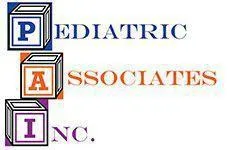Autism Q & A
What is autism?
Also known as an autism spectrum disorder, autism is a condition that affects your child's behavior and their ability to socialize and communicate. Autism is a spectrum disorder, which means the symptoms and severity can vary widely.
Although there is no cure for autism, treatment during early childhood can maximize your child's ability to communicate and function socially.
What are the early stages of autism?
Autism begins in early childhood, with many children showing symptoms within their first year of age. There are many social, communication, and behavioral differences in children with autism. Some of these include:
- Doesn't keep eye contact or makes very little eye contact
- Doesn't respond to smiles or facial expressions
- Doesn't point to objects as an early form of communication
- Has difficulty transitioning from one activity to another
- May be very sensitive to light, smells, sound, or touch
Although most children show signs during their first year, some children may develop normally and then regress between 18 and 24 months. If you have concerns about your child's behavior or development, don't hesitate to seek medical care. Acting early can have a significant impact on your child's condition.
How is autism diagnosed?
If you notice signs of autism, the first step is a thorough and accurate screening. Because autism is a spectrum disorder, diagnosis can be difficult. During your appointment, your pediatrician discusses any symptoms you've observed and checks your child for signs of developmental delays.
Be prepared to discuss your child's behavior and how their communication and interactions have developed over time. At Pediatric Associates, Inc., our team has extensive experience screening for autism and works together to provide your child with the most accurate diagnosis.
What happens after my child's diagnosis?
There is no one-size-fits-all treatment when it comes to autism. Because there is no cure, the goal of treatment is to reduce your child's symptoms and support their ability to learn and develop. Depending on your child's condition, your pediatrician may recommend several options, including:
- Behavior therapy
- Speech therapy
- Educational therapy
If your child suffers from hyperactivity or severe behavioral problems, your doctor may recommend medication to control their symptoms. You and your family may also benefit from family therapy to learn ways to promote behavioral and social skills better.
If you have concerns about your child's behavior or development, book an appointment at Pediatric Associates, Inc. by calling the office or using the online booking tool today.
